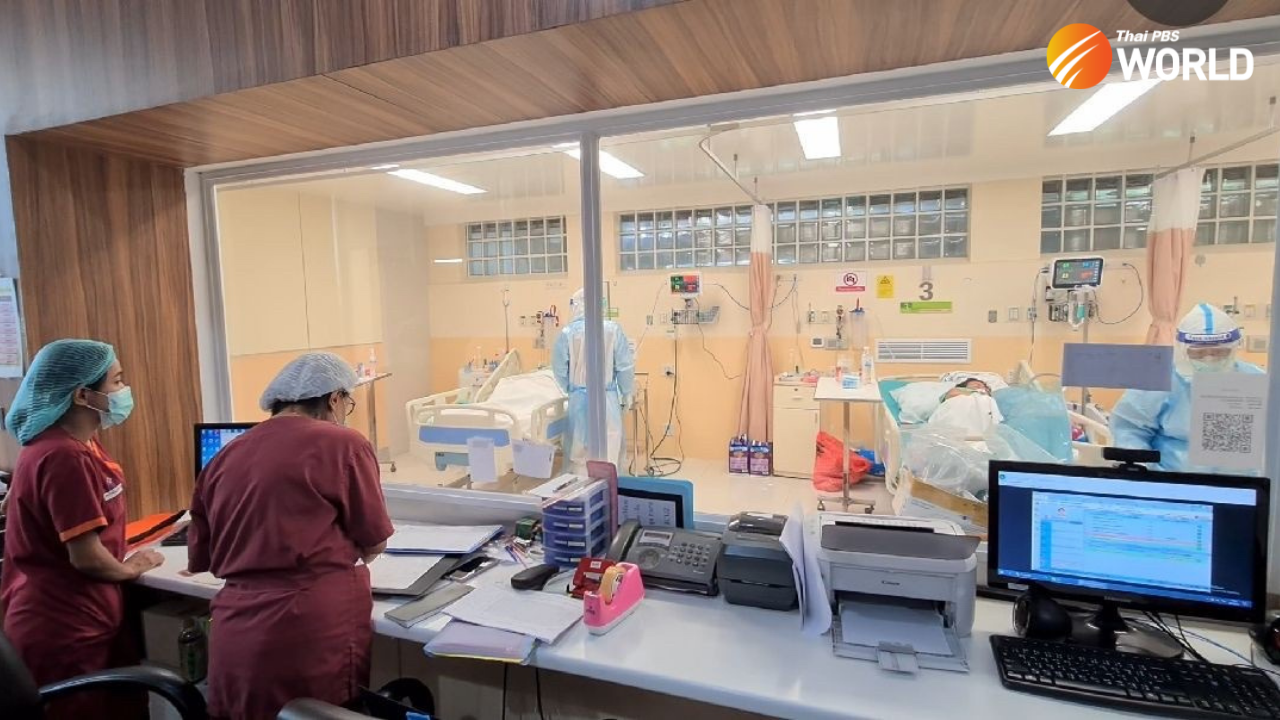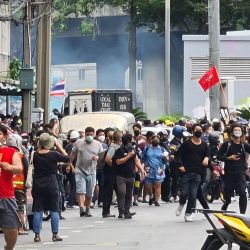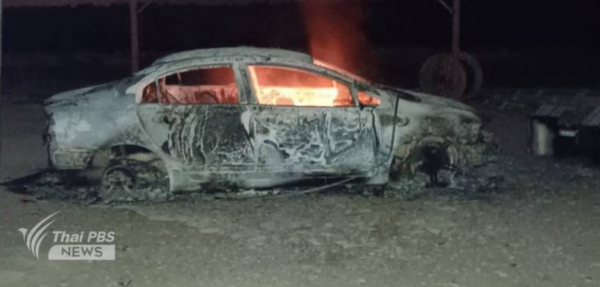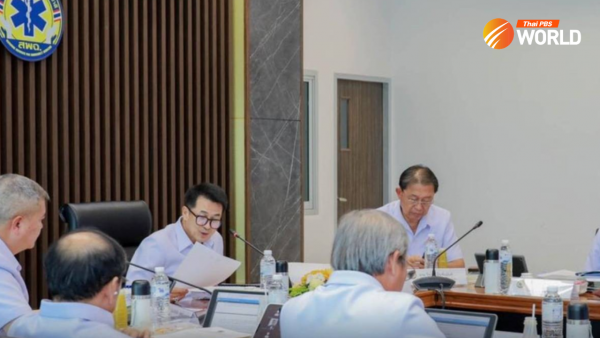Protection for medics or impunity for govt: COVID amnesty bill under spotlight

The government is poised to declare one of its most controversial decrees under emergency law – one that would hand legal immunity to both COVID-19 health workers and those in charge of vaccine procurement.
While Public Health Minister Anutin Charnvirakul insists this so-called “amnesty decree” is designed to boost morale of health personnel working in the frontline, critics are not convinced.
What is the amnesty decree?
Drafted by the Public Health Ministry, the proposed law is officially titled the “Emergency Decree on Limited Liability of Healthcare Workers in COVID-19 Treatments”. The draft decree emerged in response to a resolution passed by the ministry’s Emergency Operation Centre for COVID-19 Situation on July 27.
The resolution instructed the Health Service Support Department (HSSD) to improve legal mechanisms for the protection of healthcare personnel working under the state of emergency imposed since March 26, 2020, to tackle the COVID-19 epidemic.
The draft would exempt medical workers and medical facilities from any civil, criminal, disciplinary and tort liabilities for mistakes they make while carrying out duties in an emergency.
The law covers doctors, medical practitioners, village health volunteers, ad-hoc volunteers and those asked by health professionals to help. It would also hand legal immunity to people or groups assigned by authorities to procure, distribute or manage the COVID-19 vaccine rollout.
Medical facilities covered by the new law will include hospitals or venues manned by healthcare workers for the treatment of COVID-19 cases.
Rationale behind the amnesty
Anutin said the decree aims to boost morale and give peace of mind to health personnel and support staff working hard in the ongoing battle against COVID-19. Medical personnel and facilities have been overwhelmed by a surge in cases since April.
“We want to assure them that they do not need to worry. With such an assurance, they will be able to concentrate better on treating patients,” the minister said.
Dr Tares Krassanairawiwong, HSSD director-general, said COVID-19 is a new and dangerous infectious disease, the treatment of which is constrained in several ways.
“The caseload has been rising and variants have also emerged. Available resources are insufficient [to tackle the outbreak],” he said, adding that, as a result, medical organisations and private hospitals had asked for a law granting them legal amnesty in treating patients.
“I also emphasise that exemption [from legal responsibility] will only be granted in cases where medical personnel carry out their duties honestly and with no sign of grave negligence,” Tares said.
The proposed amnesty will offer protection from complications and damages related to the health crisis even after the state of emergency is lifted.
In addition to the amnesty, health professionals, medical facilities and volunteers will have the right to seek assistance and remedial action in line with the law or based on government measures.
Top doctors want legal protection for Thai medics involved in handling COVID-19
Top medical professionals, representing Thailand’s main medical organizations, urged the government today (Wednesday) to develop ways to protect medical personnel involved in the care of COVID-19 patients from legal exposure in case of errors in the honest performance of their duties.
Points of contention
The so-called amnesty decree has drawn most opposition for its move to hand legal immunity to those in charge of procuring and managing COVID-19 vaccines. Many Thais believe this government has failed badly in tackling the outbreak and vaccinating the population.
Despite loud complaints over the government’s reliance on a single source – AstraZeneca – for vaccines, the administration did not alter this policy until January. It then scrambled to purchase more than 10 million doses of Sinovac vaccine from China, despite doubts over its efficacy.
Critics also slammed the government for being so slow to acquire the highly effective mRNA vaccines produced by Pfizer and Moderna. The only mRNA doses currently available in Thailand were donated by the US.
Thailand has been hit hard by a fourth wave with daily infections exceeding 20,000 and deaths in the hundreds. This was a catastrophe that many believe could have been averted or at least curbed if the government’s mass vaccination had been more effective. Only 6.73 per cent of the Thai population has been fully vaccinated as of Thursday (August 12).
As of August 12, official records show COVID-19 has infected 839,771 and killed 6,942 people in Thailand. It is widely believed that the real numbers are a lot higher than officially reported.
Apart from rising fatalities, the pandemic has had a severe impact on the economy. Millions across the country are now struggling to feed themselves as illness and lockdowns rob them of their livelihoods.
Move Forward Party MP Wiroj Lakkhanaadisorn insists the public won’t object to frontline medics being protected under the law given the constraints they have to work under. However, it is not acceptable for an inefficient government to use health professionals as a front to protect itself, he added.
“If this law is passed, people whose vaccination booking has been repeatedly postponed will not be able to sue authorities. In fact, many people have died while waiting for their jab,” Wiroj said. “Many COVID-19 patients don’t have access to the antiviral Favipiravir – which is a standard medication for COVID-19. Many patients have died on the street or at home.”
If this amnesty decree is imposed, young children who have lost their parents due to government mismanagement will not be able to fight in court and claim compensation, he pointed out.
“So many people have gone bankrupt because the government has been lenient over trafficking of migrant workers, gambling dens and nighttime venues,” he said, referring to apparent sources of virus outbreaks.
What’s next?
Anutin has promised that the opinions of all relevant parties will be gathered before the draft decree moves forward.
Dr Supat Hasuwannakit, president of the Rural Doctors Society, said he does not think a blanket amnesty is necessary. “Existing laws already protect patients and healthcare workers,” he said.
Panus Tussaneeyanont, a former dean of Thammasat University (TU)’s Faculty of Law, believes the amnesty decree may have been spurred by the opposition party’s complaint to theNational Anti-Corruption Commission that Prime Minister Prayut Chan-o-cha had mismanaged the vaccine rollout.
Thai Lawyers for Human Rights and the TU Law Centre have promised to help people take criminal, administrative and civil action against the government over COVID-19 problems if they come forward.
Thousands of people, meanwhile, have signed a petition on change.org opposing amnesty for those in charge of procuring and distributing COVID-19 vaccines.
By Thai PBS World’s General Desk






